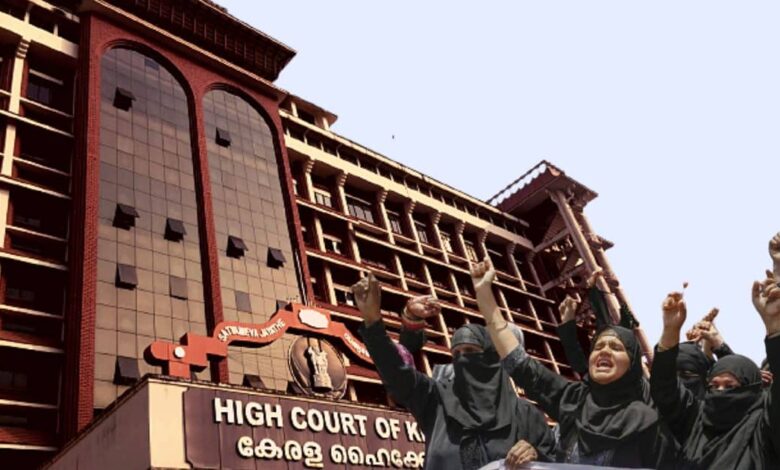
However, in a recent important judgment, the Kerala High Court has drawn much-needed clarification about the difference between different kinds of talaq under Sharia law, especially about the Muslim Women (Protection of Rights on Marriage) Act, 2019.
The bench of Justice A Badharudeen proceeded to analyze the key issue assuming whether the talaq given by the petitioner-husband was triple ‘talaq,’ slang as ‘Talaq-E-Mufrat’ instantly, and which cannot be withdrawn or if it was ‘Talaq-E-Sunnat,’ which is legally recognized.
The petitioner had been accused of breaching the requirements of the Act by tendering a talaq that was instant and irreversible to his wife.
However, the petitioner’s counsel relied on the proposition wherein the man has uttered talaq three times, but he intended to state those three talaqs in Talaq-E-Sunnat, which is different from Talaq-ul-Biddat in that it is instantaneous as well as irreversible.
The court also went further to discuss what constitutes ‘Talaq-Ahsan,’ ‘Talaq-Hasan,’ and ‘Talaq-ul-Biddat. ’ Although it is crucial to note that the court pointed out that ‘Talaq-ul-Biddat,’ which entails instantaneous divorce and cannot be withdrawn is the form that is outlawed under the Act.
The court elucidated that ‘Talaq-E-Sunnat,’ even if declared legally ineffectual, cannot be identified as ‘Talaq-ul-Biddat. ’ On improperly aforesaid ‘Talaq-E-Sunnat’ doesn’t transform into the forbidden ‘Talaq-ul-Biddat.
This has given much-needed directions regarding the various forms of Talaq and its legal position, especially in the wake of the ‘Muslim Women (Protection of Rights on Marriage) Act, 2019’.
These rulings by the court, particularly the differences between ‘Talaq-E-Sunnat,’ which means three serial divorces involving an offer to sleep with the wife by the divorced man during periods of purity, safe season, and drought climate, respectively, and ‘Talaq-ul-Biddat,’ which means an instant divorce, are expected to greatly influence future implementation and/or interpretation of the Act.



